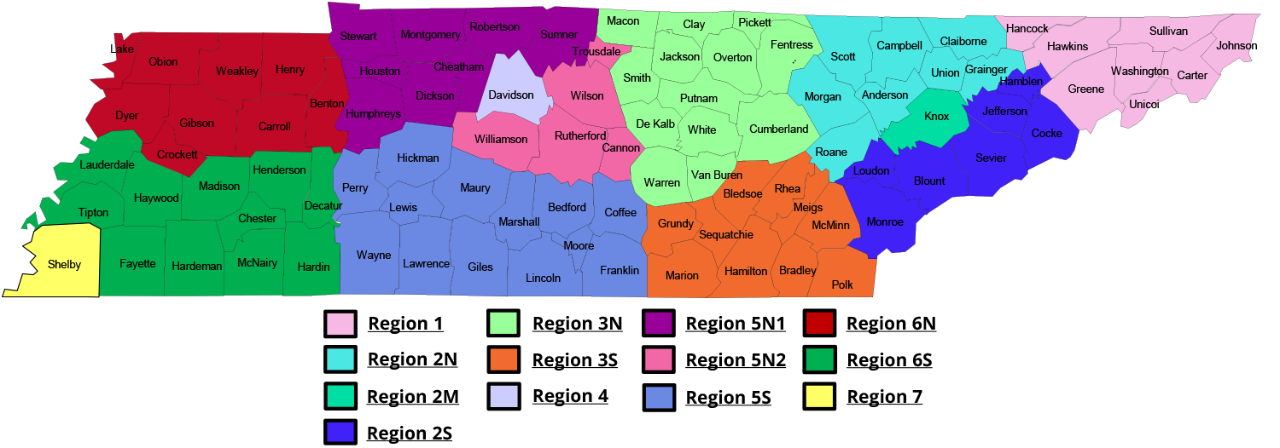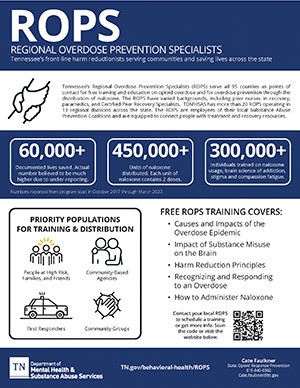Regional Overdose Prevention Specialists
Regional Overdose Prevention Specialists (ROPS) are located throughout the state of Tennessee as a point of contact for training and education on opioid overdose and for overdose prevention through the distribution of naloxone. From October 2017 through March 2023, the ROPS distributed more than 450,000 units of naloxone, and TDMHSAS has documented at least 60,000 lives saved because of naloxone distributed during that time. Because of stigma and other factors, the department believes the actual number of lives saved is much higher.
The ROPS have varied backgrounds, including peer nurses who are in recovery, paramedics, and Certified Peer Recovery Specialists. TDMHSAS has a total of 20 ROPS operating in 13 regional divisions across the state. Click this link or the map below for contact information.
ROPS focus on three primary groups with their work:
- First Responders
- Individuals at high risk of overdose, their families, and friends
- Agencies and organizations that provide treatment and recovery services or community resources
In addition to the priority populations, the ROPS will train all interested community members.
The Regional Overdose Prevention Specialists interface with their assigned communities primarily through training events. Material for the trainings consists of:
- Harm Reduction – Harm Reduction is a way of preventing disease and promoting health that meets people where they are rather than making judgments about where they should be. Scientifically-proven ways of mitigating risks associated with use are essential. This includes the distribution of the lifesaving opioid overdose antidote Naloxone.
- Addressing Stigma – ROPS seek to reduce stigma in their communities by encouraging people at their trainings to use person first language remembering that the person living with a substance use disorder is still a person first. Other stigma reducing topics include identifying unintentional bias, examining drug use from a continuum perspective, and understanding that substance misuse is often linked to trauma.
- Increasing Public Awareness – In their trainings, ROPS also share knowledge of the broader trends of the opioid crisis, the brain science of addiction, compassion fatigue, and how to administer naloxone.
To learn more or to schedule an opioid education and naloxone training, please contact your Regional Overdose Prevention Specialist. Find the Regional Overdose Prevention Specialist who serves your area using the map at this link.
Training and Self-Assessment
Using the link below, you can take a training on naloxone administration, perform a self-assessment, and receive a certificate of completion (be sure to enter your name and the date on the certificate of completion). Completing the process takes about 15 minutes. Link to naloxone training for general public.
ROPS in the News
For More Information
To learn more about the program, please contact:
Cate Faulkner
Manager, State Opioid Response Prevention
615-840-0382
Cate.Faulkner@tn.gov

